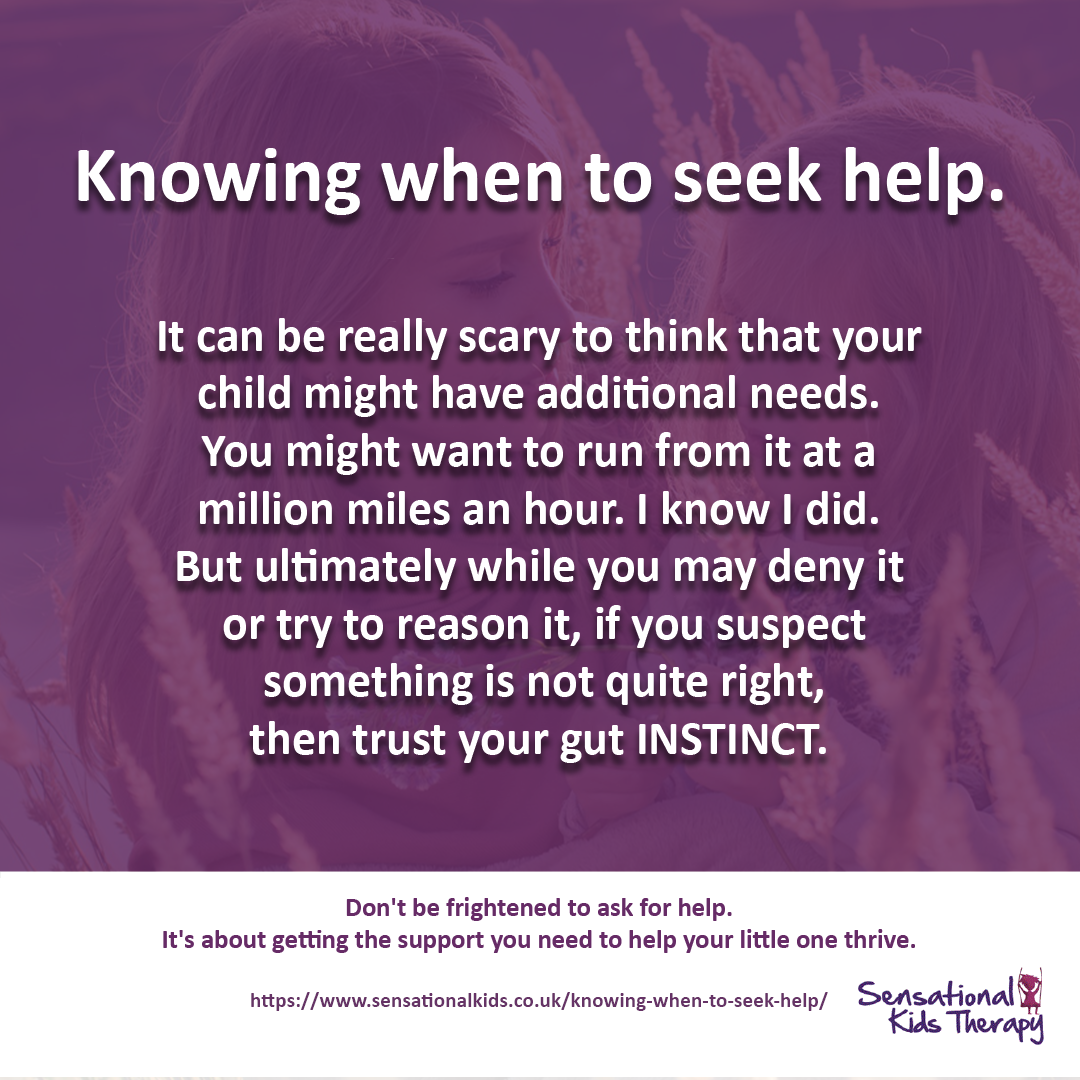When I speak to friends and other parents, they often ask what the signs were. What made me think that my eldest, Xavier, was different? And to be honest, I can’t really pinpoint it. I’ve spoken to many parents and the one definitive sign everyone can agree on sharing is that “some things were just not right.”
It can be really scary to think that your child might have additional needs. You might want to run from it at a million miles an hour. I know I did. But ultimately while you may deny it or try to reason it, if you suspect something is not quite right, then trust your gut instinct.
Some of the behaviours which kids display are very often a part of normal childhood development, which is why it can be so difficult to spot genuine additional needs. Schools and nurseries don’t test every single child, for every single development trait, and so it is inevitable that some children are missed. I cannot stress this enough – if you think there is something not quite right, do not wait for teachers to flag up difficulties. Your holistic, intimate and unrivalled knowledge of your child means you can spot difficulties quite accurately.
Below are some of the generic Developmental Health Watch Signs which myself and the parents I work with think are more notable or were more prevalent:
At 1 Year
- Refuses to cuddle or shows no affection for the person who cares for him
- Doesn’t seem to enjoy being around people
- Shows no interest in games of peekaboo – does not laugh or make squealing sounds
At 2 years
- Does not seem to know the function of common household objects (brush, telephone, fork)
- Does not imitate actions or words
- Does not follow simple instructions
At 4 years
- Cannot ride a tricycle or scooter despite trying
- Has difficulty scribbling – Cannot copy a circle, vertical or horizontal line
- Shows no interest in interactive games – wants to be in charge of the games
- Ignores children their own age – fantastic with babies or much older children and adults
- Doesn’t respond to people outside the family or treats everyone as familiar
- Resists dressing, sleeping, using the toilet
- Lashes out without any self-control when angry or upset
At 5 years
- Exhibits extremely fearful/timid or aggressive behaviour
- Is unable to separate from parents without major protest – Still clings or cries when they leave
- Is easily distracted and unable to concentrate on any single activity for more than five minutes
- Shows little interest in other children, and may refuse to respond to people in general
- Doesn’t express a wide range of emotions and may seem unusually passive
- Has trouble eating, sleeping, or using the toilet
- Can’t correctly give their first and last name
Transitions:
Many children will also have significant difficulties struggling with key transition points in their life. They find it difficult to cope with changes which occur naturally such as:
- Toilet training
- Starting nursery
- Starting school
- Changing class or Changing schools
- Having a different babysitter
- Childcare – breakfast club or a childminder
- Moving home
- Going on holiday
- Christmas activities (this is more distressing for some kids than we may imagine)
- Welcoming a new baby into the house
- Being ill
- Eating at a restaurant
- Play dates
- Birthday parties – their own or other children’s
- Surprises
- Family coming to stay
They may seem minor, but our Conundrum kids very often struggle with transitioning. They don’t understand why environments are so different; why they need to behave differently, and why different rules apply.
So you think you might need some help. But where do you start? I honestly believe that there is such good care when your baby is little, that your health visitor should be your first port of call. Not your friends. Not your mother-in-law, and certainly not the internet. The routine check-ups. Talk to them about any concerns. I have purposely omitted health warning signs for babies under 1 year old. Babies all develop at their own pace, in their own way. Some faster than others. Some slower. Some in stages – and this is all fine.
After that, school and your GP are great places to start. They can point you in the right direction of help and resources, and help you understand what’s next.
So, don’t be frightened to ask for help. It doesn’t mean anything’s ‘wrong’ or even that you should be overly worried (although of course you will be – that’s normal). It’s about getting the support you need to help your little one thrive.

